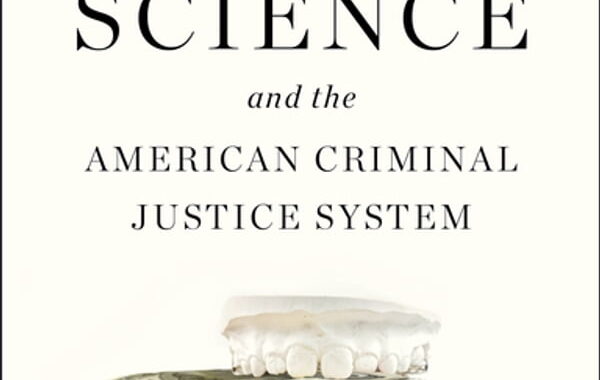Book Review: Junk Science and the American Criminal Justice System
JUNK SCIENCE AND THE AMERICAN CRIMINAL JUSTICE SYSTEM
By M. Chris Fabricant
New York: Akashic Books, 2022. $29.95
Sir Bernard Spilsbury was arguably the first celebrity pathologist, a man whose testimony in early-twentieth-century British courts of law was long considered the final word in forensic science. With his commanding and convincing manner, he persuaded many juries to convict based on evidence he had analyzed, but decades later, some researchers have concluded that many of Spilsbury’s conclusions were scientifically unsound. One condemned man went to the gallows protesting his innocence, declaring, “I am a martyr to Spilsburyism.” In Junk Science and the American Criminal Justice System, M. Chris Fabricant argues that Spilsburyism (whether or not that term is actually fair to the late doctor) is alive and well and still leading to the convictions of many innocent people.
On television shows such as CSI, viewers are informed that “the science doesn’t lie.” Perhaps solid science is reliable, but pseudoscience presents inherent mistruths. Fabricant, director of strategic litigation for the Innocence Project, draws on his personal experience as a defense attorney to illustrate how the titular junk science has corrupted courtrooms and produced faulty verdicts. The two fields of forensic investigation that he claims are the most problematic are arson investigation and bite-mark analysis. Fabricant argues that many arson investigators are trained (often without extended education) to identify certain points as proof of arson without taking innocent possibilities into consideration. He profiles prominent cases, including one in which a genuine expert was able to debunk many false assumptions about the forensic evidence in a house fire, leading to the vindication of an innocent man. Bite-mark evidence, once considered a reliable gauge of the wounds left by teeth, has in recent years been dismissed as terribly flawed, and the confident declarations by “expert” witnesses who proclaim that certain bite marks must have come from a particular defendant have been utterly discredited, leading to wrongly convicted people being set free, though not until after they’ve lost lengthy stretches of their lives.
While the book is highly informative and otherwise well written, it could have been better structured. Some of the sagas of wrongly convicted people are spread out throughout the book, and the narrative might have been easier to follow if an entire story was told in a single chapter rather than in a few pages over the course of four or five chapters, all with other chapters separating them. Additionally, some deeper analysis of what qualifies as good science would really help readers understand the full scope of what is being presented. The book avoids technical jargon, but deeper background information on several disciplines would prove particularly helpful to readers trying to understand how some professed forensic experts went so very wrong.
Fabricant’s portrait of American criminal justice might strike some as overly negative, but he makes a number of strong points, and anyone who reads this book will conclude that certain changes need to be made.
—Chris Chan

